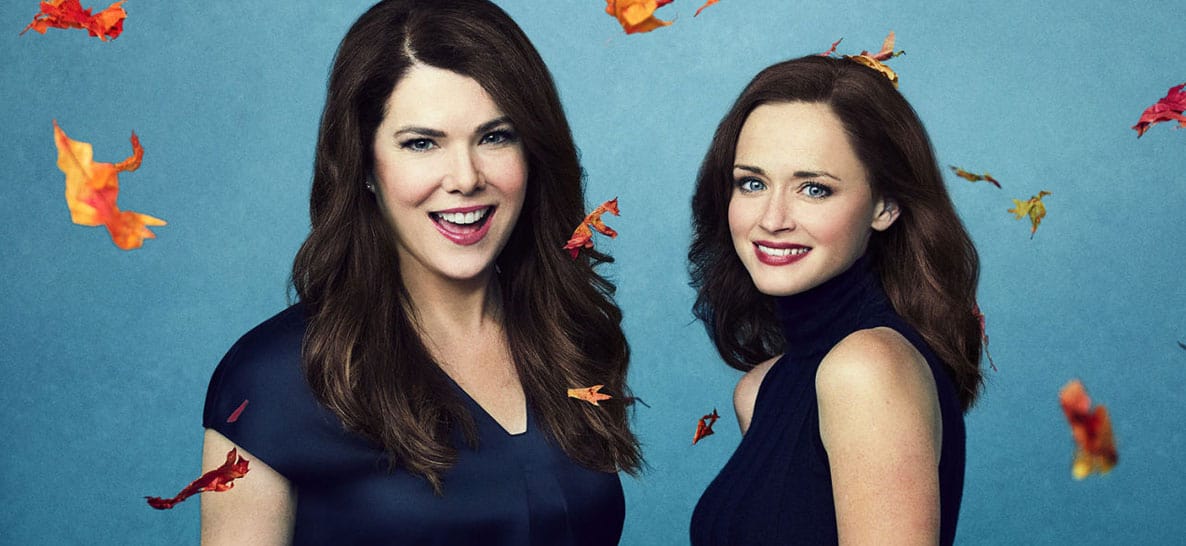
After nearly eight years off the air, Rory, Lorelai and Emily, the beloved Gilmore Girls, returned to our screens over Thanksgiving in a Netflix revival—a television genre that is quickly becoming a TV genre of its own. Fans were most anxious to see the show’s gifted and bookish teen heroine, Rory Gilmore, as an adult. How had she matured? What lessons would she have learned along the way?
The answers: not very many.
The revival revealed that Rory Gilmore was flailing at 32 years old. Though she’s as ambitious as ever, her career achievements were inconclusive. She feels limited by her choices (despite having every opportunity available) and finds herself disenfranchised by the difficulties of life. Her entitlements create a muck that she’s sunk deep into. What’s worse, she’s acting out: behaving with the carelessness and condescension that can only come out of a deeply disappointed place.
This shouldn’t surprise us.
Throughout the original series, Rory’s role models ran the gamut from Diane Sawyer to Alexander Pushkin. But the person she looked up to the most was never in question; it was her mother, Lorelai. A tenacious and tireless advocate for Rory’s interests, Lorelai demonstrated to her daughter that the power of a strong, self-determined woman knows no bounds. Lorelai’s boldness, borne out of a single mom’s necessity, adds to—is intrinsic to—her magnetic charm.
But without the responsibility of a teen pregnancy, Rory’s tenacity becomes entitlement.
As a single mom, Lorelai is forced to humble herself before her wealthy parents in order to fund Rory’s education at an exclusive private school. This ask catapults Rory into a world where she becomes de facto New England gentility.
As a result, Sherman-Palladino, the six-year showrunner and head writer for Gilmore Girls: A Year in the Life, chooses to do what very few television storytellers do with their characters: She allows nature to take its course. Without a real challenge and low stakes, Rory never develops the ability to distinguish humility as strength.
Ungalvanized, her career ambitions and personal relationships are centered on her own self-gratification. Though she may place the same value on strength that Lorelai does, she has begun to believe the ability to be strong absolves her of the responsibility to act morally.
This speaks to the peculiar problem facing feminism in our decade.
It is true that the liberty to pursue our ambitions is foundational to experiencing self-actualization as individuals. Female individuals face a more complicated algorithm for success. The “rules” for both personal responsibility and sacrifice on behalf of the collective good conflate as marriage and motherhood come into play. The reason women talk so much about “having it all” is because, truly, none of us feel like we do.
Like Rory, there is a deeply disappointed place in many of us, a wound we find opened anew when the use of our brute strength fails to yield favorable results.
In such cases, women are left with the choice to adopt a Machiavellian concept of feminism, where as long as we achieve our personal end goals, the damage we do to ourselves and to others is just collateral.
A popular Christian writer named Glennon Doyle Melton recently drew ire by observing that “the most revolutionary thing that a woman can do is to not explain herself.” While some evangelical leaders have dismissed her remarks as simply justification for her own life and choices, I cannot be so flippant as that toward my sister.
The truth is that the idea of a woman’s strength—female strength—is as iconic as it is ethereal. But like every form of strength, there can be no beauty in it unless it is accompanied by sacrifice. A woman armed with brute strength has the potential any man would have armed with the same. And any person that is simply strong, but lacks compassion, is a bully.
We may not have to explain ourselves to our own society, and that is where liberty begins. This story began from the freedom Christ purchased 2,000 years ago. But the real story is what we choose to do next.
To refuse to explain ourselves, in a world that demands women rationalize our every action, is a revolutionary act. But that is only half the story; and as we see in Rory’s case, it is, frankly, the attitude of an adolescent, not yet fortified by the humility and desperation and brokenheartedness that life may yet require of us.
We are called to more, men and women (and Gilmores) alike.






















